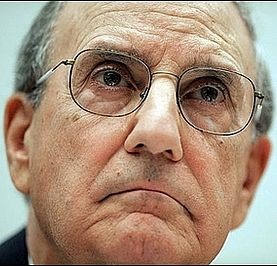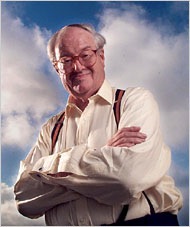For too much of the world at large the names of the dead and wounded in Gaza might as well be John Doe too. They are the casualties and victims of Israel’s decision to silence the rockets from Hamas terrorists by waging war on an entire population. Yes, every nation has the right to defend its people. Israel is no exception, all the more so because Hamas would like to see every Jew in Israel dead.
But brute force can turn self-defense into state terrorism. It’s what the U.S. did in Vietnam, with B-52s and napalm, and again in Iraq, with shock and awe. By killing indiscriminately — the elderly, kids, entire families by destroying schools and hospitals — Israel did exactly what terrorists do and exactly what Hamas wanted. It spilled the blood that turns the wheel of retribution.
Hardly had Israeli tank fire killed and injured scores at a UN school in Gaza than a senior Hamas leader went on television to announce, “The Zionists have legitimized the killing of their children by killing our children.” Already attacks on Jews in Europe are escalating — a burning car crashes into a synagogue in Southern France, a fiery object is hurled through a window in Sweden, venomous anti-Semitic graffiti appears across the continent, and arsonists strike in London.
What we are seeing in Gaza is the latest battle in the oldest family quarrel on record. Open your Bible: the sons of the patriarch Abraham become Arab and Jew. Go to the Book of Deuteronomy. When the ancient Israelites entered Canaan their leaders urged violence against its inhabitants. The very Moses who had brought down the commandment “Thou shalt not kill” now proclaimed, “You must destroy completely all the places where the nations have served their gods. You must tear down their altars, smash their pillars, cut down their sacred poles, set fire to the carved images of their gods, and wipe out their name from that place.”
So God-soaked violence became genetically coded. A radical stream of Islam now seeks to eliminate Israel from the face of the earth. Israel misses no opportunity to humiliate the Palestinians with checkpoints, concrete walls, routine insults, and the onslaught in Gaza. As if boasting of their might, Israel defense forces even put up video of the explosions on YouTube for all the world to see. A Norwegian doctor there tells CBS, “It’s like Dante’s Inferno. They are bombing one and a half million people in a cage.”
America has officially chosen sides. We supply Israel with money, F-16s, winks and tacit signals. Our Christian right links arms with the religious extremists there who claim divine sanctions for Israel’s occupation of the West Bank. Our political elites show neither independence nor courage by challenging the consensus that Israel can do no wrong. Although one recent poll found Democratic voters overwhelmingly oppose the Israeli offensive by a 24-point margin, Democratic Party leaders in Congress nonetheless march in lockstep to the hardliners in Israel and the White House. Rarely does our mainstream media depart from the monotonous monologue of the party line. Many American Jews know, as Aaron David Miller writes in the current “Newsweek”, that the destruction in Gaza won’t do much to address Israel’s longer-term needs.
But those who raise questions are accused by a prominent reform rabbi of being “morally deficient.” One Jewish American activist told me this week that never in 30 years has he seen such blind and binding conformity in his community. “You’d never know,” he said, “that it is the Gazans who are doing most of the suffering.”
We are in a terrible bind — Israel, the Palestinians, the United States. Each greases the cycle of violence, as one man’s terrorism becomes another’s resistance to oppression. Is it possible to turn this mindless tragedy toward peace? For starters, read Aaron David Miller’s article in the current “Newsweek”. Get his book, “The Much Too Promised Land”. And pay no attention to those Washington pundits cheering the fighting in Gaza as they did the bloodletting in Iraq. Killing is cheap and war is a sport in a city where life and death become abstractions of policy. Here are the people who pay the price.
That’s it for the Journal. I’m Bill Moyers. We’ll be back next week.






 John Mortimer has left for that great Pomeroy’s Wine Bar in the sky.
John Mortimer has left for that great Pomeroy’s Wine Bar in the sky. 

